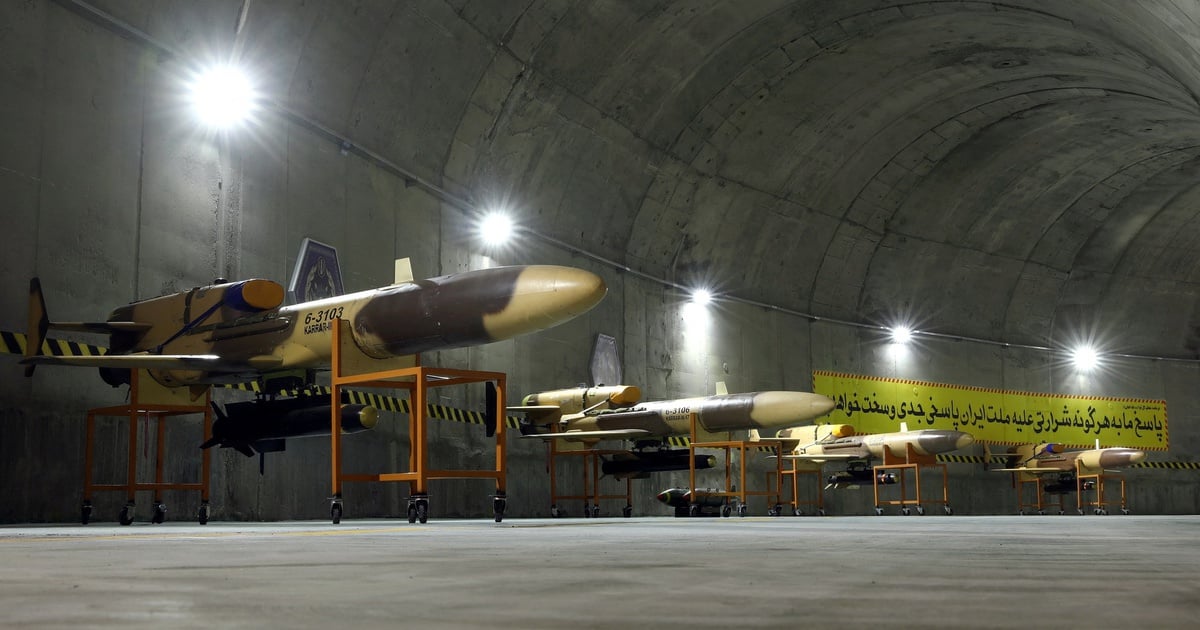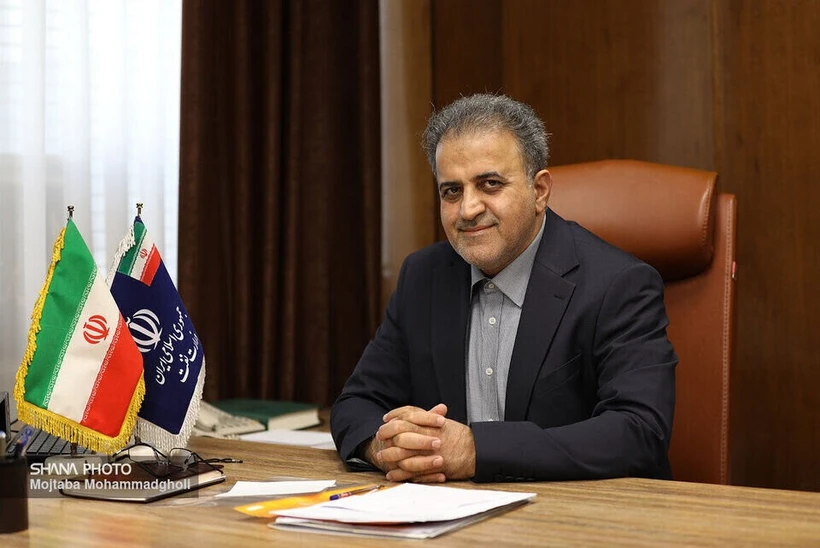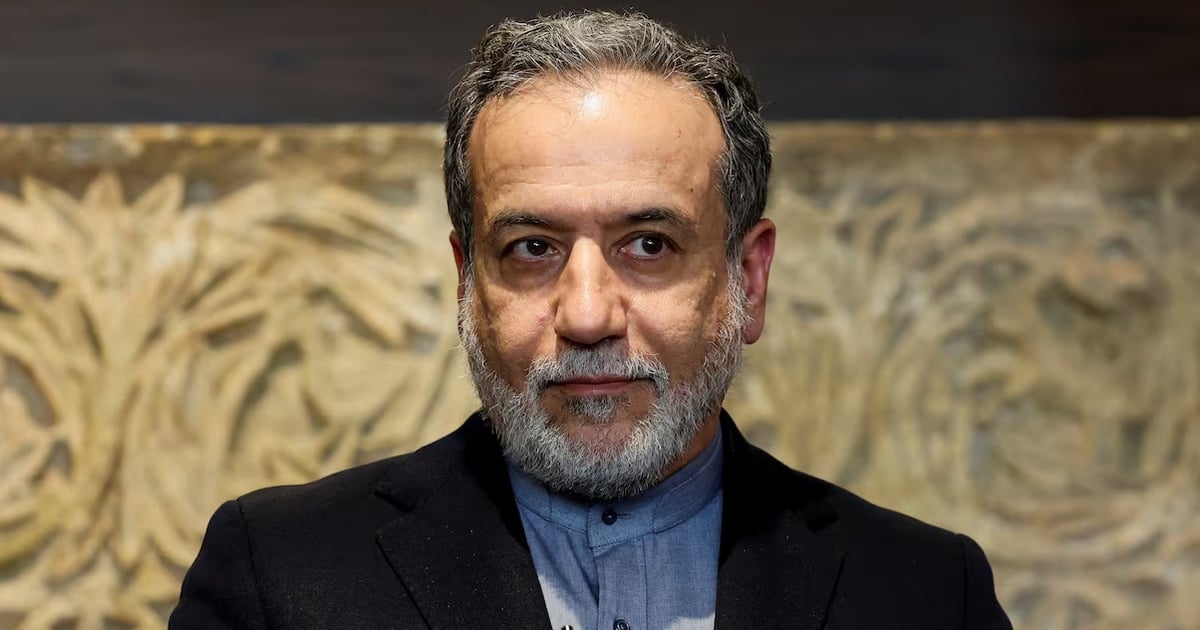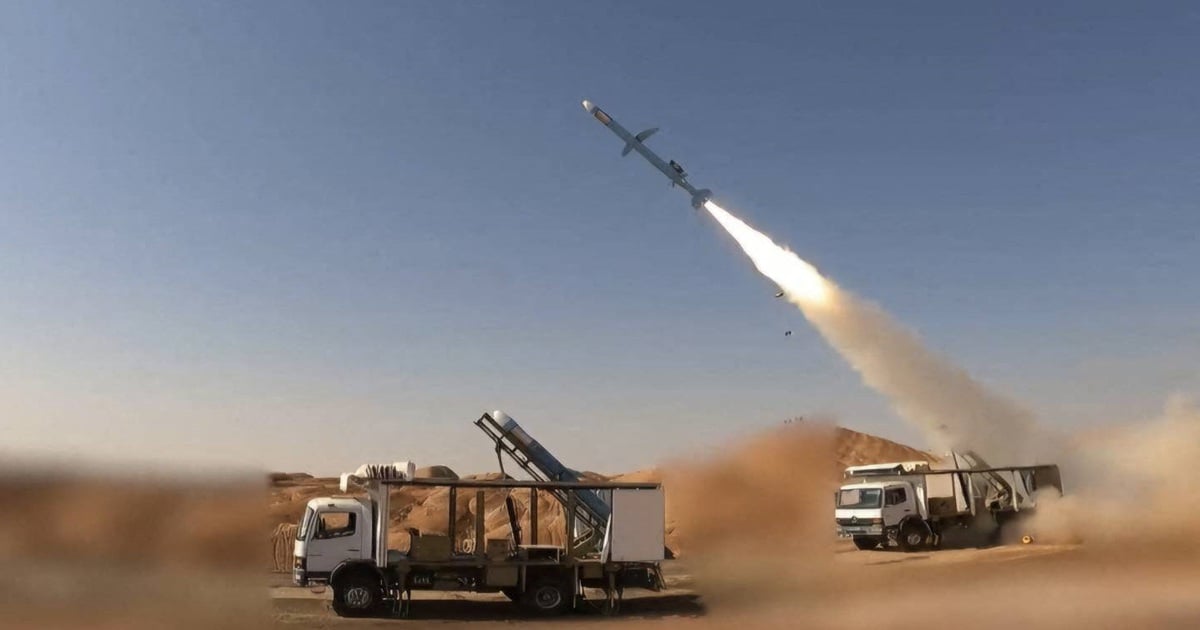Three Iranian sources said Iran’s weapons package of about 400 missiles includes many of the Fateh-110 family of short-range ballistic missiles, such as the Zolfaghar. Experts said the mobile missiles can strike targets within a range of 300km to 700km.
Iran’s defense ministry and the Revolutionary Guard Corps – an elite force that oversees Iran’s missile program – declined to comment. Russia’s defense ministry did not respond to a request for comment.
The shipment began in early January after an agreement was signed in late 2023 between Russian and Iranian military and security officials in Tehran and Moscow, an Iranian source said.
An Iranian military official said at least four shipments of missiles had been made and more would be made in the coming weeks. The official declined to provide further details.
Some of the missiles were shipped to Russia via the Caspian Sea and others were transported by plane, a senior Iranian official said.
“There will be more shipments. There is no reason to hide it. We have the right to export weapons to any country we want.”
UN Security Council restrictions on the export of missiles, drones and other technology expired in October. However, the United States and the European Union (EU) have continued to impose sanctions on Iran’s missile program amid concerns about Iran’s ability to export weapons to proxies in the Middle East and Russia.
Another source confirmed that Russia had recently received a large number of missiles from Iran, without providing further details.
White House national security spokesman John Kirby said in early January that the US was concerned that Russia was about to acquire short-range ballistic missiles from Iran, in addition to those already purchased from North Korea.
A US official said Washington had seen evidence of ongoing discussions between the two countries but no signs that the shipments had taken place.
The Pentagon did not respond to a request for comment on the missile shipments.
Missiles supplied to Russia by North Korea have been unreliable on the battlefield, with only two of 24 missiles hitting their targets, Ukraine's top prosecutor said Friday. Moscow and Pyongyang have both denied that North Korea supplied the weapons used by Russia in Ukraine.
In contrast, Jeffrey Lewis, an expert at the Middlebury Institute of International Studies at Monterey, said the Fateh-110 family of missiles and the Zolfaghar missile are highly accurate weapons.
“They are high-value, precision-strike weapons,” he said, adding that the 400 missiles could cause significant damage if used in Ukraine. But he said Russia’s bombings had already had “quite severe” consequences.
Delayed US aid weakens Ukraine's defenses
A Ukrainian military source said Kyiv had not detected any use of Iranian ballistic missiles by Russia during the conflict. The Ukrainian defense ministry did not respond to a request for comment from Reuters.
A spokesman for the Ukrainian Air Force told state television that there was no official information about Russia buying the missiles. He said the ballistic missiles would pose a serious threat to Ukraine.
Former Ukrainian defense minister Andriy Zagorodnyuk said Russia wanted to bolster its missile arsenal at a time when a series of delays in military aid from the United States were leaving Ukraine short of ammunition and other equipment.
“The lack of US aid means a weakening of the air defense system in Ukraine,” said Mr. Zagorodnyuk, president of the Center for Defense Strategy in Kyiv, a think tank that advises the Ukrainian government. “So they want to concentrate a lot of missiles and penetrate the air defense system of Ukraine.”
Kyiv has repeatedly asked Iran to stop supplying Russia with Shahed drones, Moscow's main weapon in long-range strikes against Ukrainian cities and infrastructure, and other missile systems.
The Ukrainian Air Force said in December that Russia had launched a total of 3,700 Shahed drones in the war, which can fly hundreds of kilometers and explode on impact. Ukraine calls them “motorcycles” because of their distinctive engine noise, and air defenses shoot down dozens of them every week.
Iran had previously denied supplying drones to Russia, but months later confirmed it had supplied a small number before Russia launched its special operations in 2022.
“Those who accuse Iran of supplying weapons to one side of the war in Ukraine are doing so out of political motives. We have not supplied drones for use in that war,” Iranian Foreign Ministry spokesman Nasser Kanaani said on Monday when asked about the supply of drones to Russia.
The Fateh-110 and Zolfaghar missiles from Iran would give Russia a greater advantage on the battlefield, said Rob Lee, a senior fellow at the Foreign Policy Research Institute in Philadelphia.
“They could be used to attack military targets within the operational range, and Ukraine's air defense systems would also have more difficulty intercepting ballistic missiles.”
Strengthening relations with Moscow
Iran's hardline religious leaders have repeatedly sought to strengthen ties with Russia and China, believing that this will help Tehran resist US sanctions and end its political isolation.
Defense cooperation between Iran and Russia has been stepped up since Russia sent tens of thousands of troops to Ukraine in February 2022.
Russian Defense Minister Sergei Shoigu met with the head of Iran's Revolutionary Guards Air Force in Tehran in September, where he was shown Iranian drones, missiles and air defense systems.
Last month, the Russian Foreign Ministry said it believed Russian President Vladimir Putin and Iranian President Ebrahim Raisi would soon sign a new, extensive cooperation pact, following discussions in Moscow in December.
“This military partnership with Russia has demonstrated Iran’s defense capabilities to the world. However, this does not mean that we are choosing Russia’s side in the conflict in Ukraine.”
Iran's religious leaders are facing great risks after the Israel-Hamas war broke out following the October 7 events. They are also facing a growing domestic backlash over economic disasters and social restrictions.
Although Tehran has avoided direct confrontation with Israel and drawn in the US, its Axis allies – including Hezbollah in Lebanon and the Houthis in Yemen – have attacked numerous Israeli and US targets.
A Western diplomat with knowledge of the matter confirmed the shipment of Iranian ballistic missiles to Russia in recent weeks, but did not provide further details.
Western countries are concerned that Russia's supply of weapons to Iran could also strengthen Iran's position in conflicts with the United States and Israel, he said.
In November, Iran said it had completed plans for Russia to deliver Su-35 aircraft, Mi-28 helicopters and Yak-130 training aircraft to the country.
Gregory Brew, an analyst at political risk consultancy Eurasia Group, said Russia is a natural ally of Iran.
“The relationship between the two countries is transactional: in exchange for drones, Iran wants security cooperation and advanced weapons, especially modern fighter jets.”
Nguyen Quang Minh (according to Reuters)
Source





![[Photo] Prime Minister Pham Minh Chinh chairs the Government's special meeting on law-making in April](https://vstatic.vietnam.vn/vietnam/resource/IMAGE/2025/4/13/8b2071d47adc4c22ac3a9534d12ddc17)
























































































Comment (0)